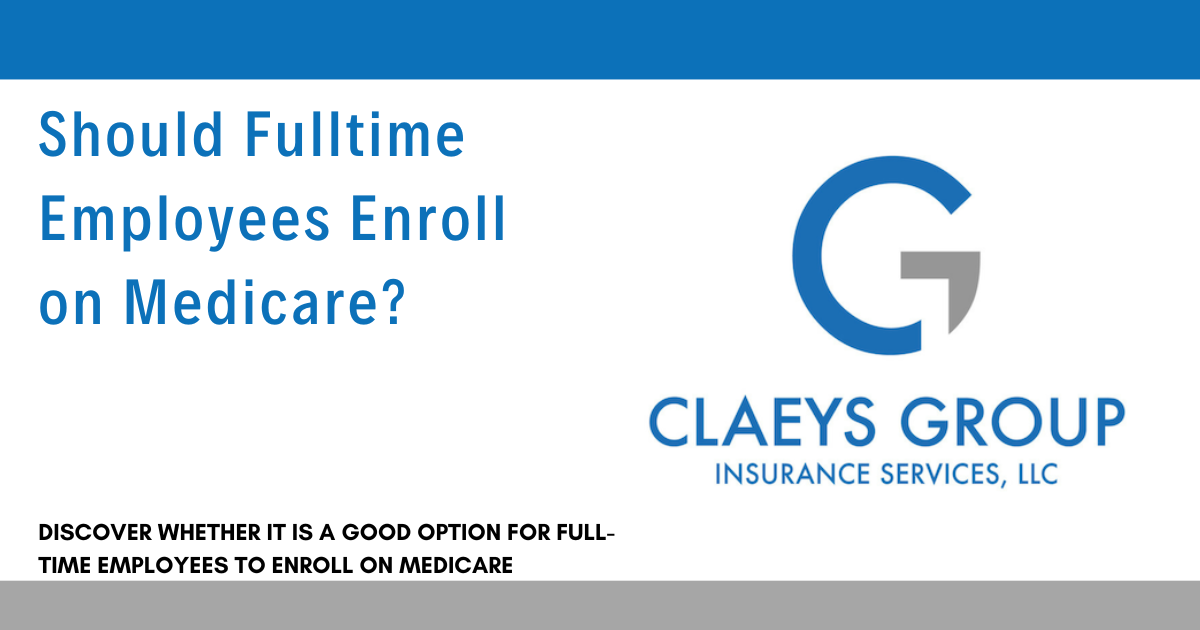
If you will soon be turning 65 but plan to continue working fulltime, you may be wondering if you should enroll on Medicare. This article will answer that question, showing what you should do regarding Medicare in your specific situation.
As a fulltime worker, you will fit in one of three categories. The first category consists of fulltime workers who have employer health insurance that will continue to provide the same coverage for employees after they turn 65. This kind of plan does not work together with Medicare, so, if you have this kind of employer coverage, you do not need to enroll in Medicare Part B (which has a monthly premium). However, it is recommended that you enroll in Medicare Part A (which has no premium for those who qualify for Medicare), as you could face a penalty for not doing so.
Let’s pause here for a brief review. Most people should enroll in Part A when they turn 65, even if they have health insurance from an employer. This is because most have paid Medicare taxes while they worked so they won’t pay a monthly premium for Part A.
Some can choose to delay Part B, but this depends on the type of health coverage you may have, as we will cover below. Everyone not on Medicaid will pay a monthly premium for Part B. This premium varies depending on your income and when you enroll in Part B. Most people will pay the standard premium amount of $134 in 2018.
The second group comprises fulltime workers who have employer coverage that will transition to work with Medicare when they turn 65. These employees will need to enroll in Medicare Part A and Part B prior to turning 65.
However, this group of employees has a choice. These workers can continue with their employee coverage, or they can choose to opt out of employee coverage and choose either a Medicare supplement or a Medicare Advantage Plan. In fact, in some cases, an employee can get better coverage for the cost with a supplement versus the employer-provided coverage.
Of course, there is one final scenario for fulltime workers. More and more fulltime workers are faced with no employee coverage either when they turn 65 or when they reach retirement. It is advantageous for these employees to enroll in Medicare Part A prior to turning 65 and to enroll in Medicare Part B prior to losing employee coverage. (For some workers, this enrollment into Medicare A and B will occur at the same time; for others, they will get a Special Enrollment Period lasting eight months in which they can enroll in Medicare Part B without a penalty.)
So, should a fulltime worker enroll on Medicare? As you can see, there is no standard answer. Instead, the answer to that question depends on the type of health insurance coverage an employee will have from his or her employer when turning 65. So, if you are working fulltime and are turning 65, ask the person in charge of health insurance for your employer. If your coverage will not work with Medicare, enroll on Medicare Part A, but do not enroll on Medicare Part B. If your insurance will work with Medicare, enroll on Medicare Parts A and B; and compare your coverage with what you can get with a Medicare supplement. Being a wise consumer will result in your savings.
Who really wants to think about dying? Buying life insurance means we must face our…
When it comes to retirement planning, Social Security is one of the most important—and often…
Claeys Group Insurance Services has been named top life insurance agency in Tyler, TX…
This article details upcoming changes to Medicare with the Inflation Reduction Act, or IRA. What…
With the ever-changing changing economic landscape of late, and with many considering retirement at age…
The Donut Hole & Inflation Reduction Act The Inflation Reduction Act, passed by Congress in…
This website uses cookies.
Read More